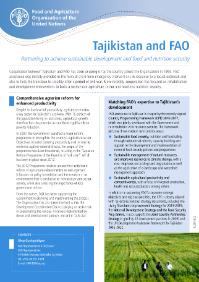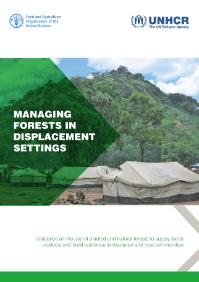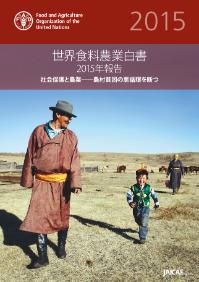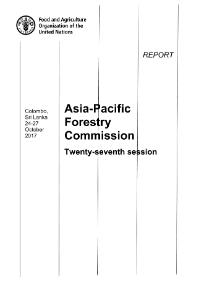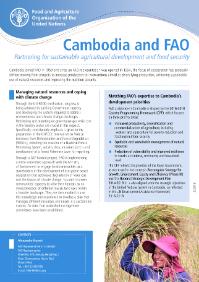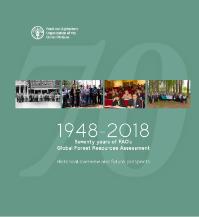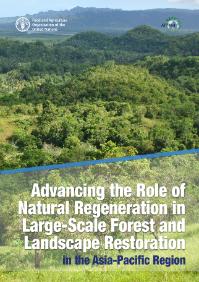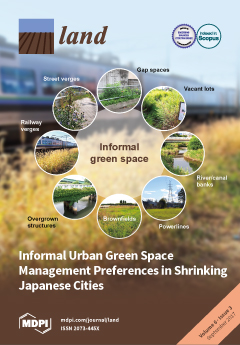Cooperation between Tajikistan and FAO has been ongoing since the country joined the Organization in 1995. FAOassistance was initially provided in the form of short-term emergency interventions in response to a locust outbreak andalso to help the transition to stability after a period of civil…
The massive increase in demand for woodfuel for cooking caused by sudden influxes of refugees and other displaced people is usually the main driver of forest degradation and deforestation in displacement settings. It places enormous pressure on nearby forests and woodlands and is often a source…
This is the translated publication of the State of Food and Agriculture 2015, published originally by HQ.
This study draws on some case studies of land reforms in different South Asian countries. These reforms came on the national and international agenda in a major way in the post- World-War II period and were led by the transition theory, requiring agriculture to provide both surplus and labor for…
This publication reports the proceedings of the twenty-sixth session of the Asia-Pacific Forestry Commission (APFC) held in Colombo, Sri Lanka, from 23 to 27 October 2017. The main themes considered were: Forestry in a new landscape; Guidelines for using forest concessions to manage public…
Cambodia joined FAO in 1950 and since an FAO representation was opened in 1994, the focus of cooperation has graduallyshifted moving from projects to increase production to interventions aimed at diversifying production, achieving sustainableuse of natural resources and improving the nutrition…
The Global Forest Resources Assessment of the Food and Agriculture Organization of the United Nations (FAO) celebrates its 70th Anniversary in 2018. FAO's forestry department whishes to commemorate this important occurrence with a special publication on the history of the past 70 years of…
There are numerous global, regional, national and even subnational targets for increasing forest area and forest restoration. In light of these global targets and emerging ambitious national commitments, it is imperative to develop low-cost strategies and techniques for landscape restoration.…
La protection et la restauration des écosystèmes de mangroves constituent une préoccupation majeure et permanente à travers le monde. La faiblesse des administrations locales et des niveaux de revenus des populations riveraines, accélèrent la dégradation de ces écosystèmes. Les espèces de bois…
The publication was launched at the Global Symposium on Soil Organic Carbon (GSOC) held at FAO headquarters (Rome, 21-23 March 2017). It provides an overview to decision-makers and practitioners of the main scientific facts and information regarding the current knowledge and knowledge gaps on…
Asian dust events are massive meteorological phenomena during which dust particles from Chinese and Mongolian deserts are blown into the atmosphere and carried by westerly winds across Northeast Asia. Recently, there has been steady increase in both the frequency and the severity of Asian…
Urban residents’ health depends on green infrastructure to cope with climate change. Shrinking cities could utilize vacant land to provide more green space, but declining tax revenues preclude new park development—a situation pronounced in Japan, where some cities are projected to shrink by over…

